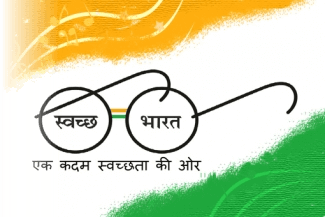Translate this page:
पीएम श्री स्कूल जवाहर नवोदय विद्यालय,द्वारका
PM SHREE SCHOOL
Jawahar Navodaya Vidyalaya,Dwarka
CBSE Affilation code : 440028 Period of Affiliation : 2027 School Code:14203 U-dise No: 24290303015
Cleanliness
ACTION TO BE TAKEN ON HYGEINE & SANITATION OF JNVs
- Availability of separate toilets/urinals for boys & girls, their cleanliness & maintenance is to be ensured at all times.
- To ensure safe & adequate potable water in the campus.
- Health & hygiene of student’s viz. medical care, health records, regular bathing, washing of clothes, proper turn out is to be taken care at all times.
- Visit of houses everyday by the HM/AHM/Staff Nurse & formal inspection once a week by the Principal/Vice-Principal & associated staff to ensure proper cleanliness, sanitation & turn out. The minutes of the inspection is to be recorded & made available to RO/HQ’s
- Cleanliness & maintenance of entire Vidyalaya campus as per guidelines issued.
- The cleanliness & maintenance of internal roads, drainage system, sewer lines, septic tank, overhead tank, disposal of waste etc. must be periodically carried out as per guidelines issued & report made available to RO/HQ’s.
- The efforts should be made to promote the awareness of Swachchhta campaign at the cluster/community/district level as pace setting activity & minutes recorded.
- To arrange a quarterly meeting with VMC, VAC to seek their cooperation and to tap the resources for further improvement of cleanliness, sanitation & hygiene in the campus.
- A comprehensive report pertaining to self- awareness & change in behavioural aspects of students & staff towards the sensitization & institutionalization of Swachhta campaign should be submitted.
- Any suggestion/assistance/guidelines required, if any, at the level of RO’s/HQ’s for further improvement towards the swachhta campaign may be sought in the further course of action.
Potable Drinking Water
- 1. Availability of sufficient potable drinking water at all the places in the campus from external /internal sources.
- 2. Availability of feasibility report for potable drinking water from District/State authority.
- 3. To check the leakages in water supply lines & to protect the same from soak pits/leach points/garbage etc.
- 4. Updated record of cleaning, chlorination/bleaching of potable drinking water being supplied through Overhead tank (OHT) or any other source of water.
- 5. Availability of RO water in different parts of campus.
- 6.Safe handling & storage of drinking water should be practiced.
- Operations & Maintenance
(a) Classrooms:
- 1. Daily cleaning/dusting of classroom furniture, black boards & available teaching aid material.
- 2. To check whether class notice board contains the display of duty roster, schedule of organizing weekly/fortnightly activities/any other relevant information.
- 3. To check whether SMART classroom, computer lab, Art room, Music room etc. are all operational.
- 4. To ensure proper & systematic maintenance of devices so as to keep the classroom lively & a source of effective curriculum transmission in the teaching learning process.
(b) Library/Labs./other activity rooms
- 1. To check whether students & staff are making optimum use of library/labs/other activity rooms for promoting reading habits, scientific temper & adopting innovative practices in their day to day teaching/learning interaction.
- 2. Computerization of catalogue of books & its issuance.
- 3. To check whether equipments, chemicals, apparatus etc. are all adequately available as per CBSE norms & are being utilized judiciously under the supervision of concerned teaching faculty.
- 4. The practical notebooks are available & updated record of practicals conducted is maintained & checked by the respective teachers.
- 5. The cleanliness & maintenance of laboratories/library & other activity rooms are superb at all times.

